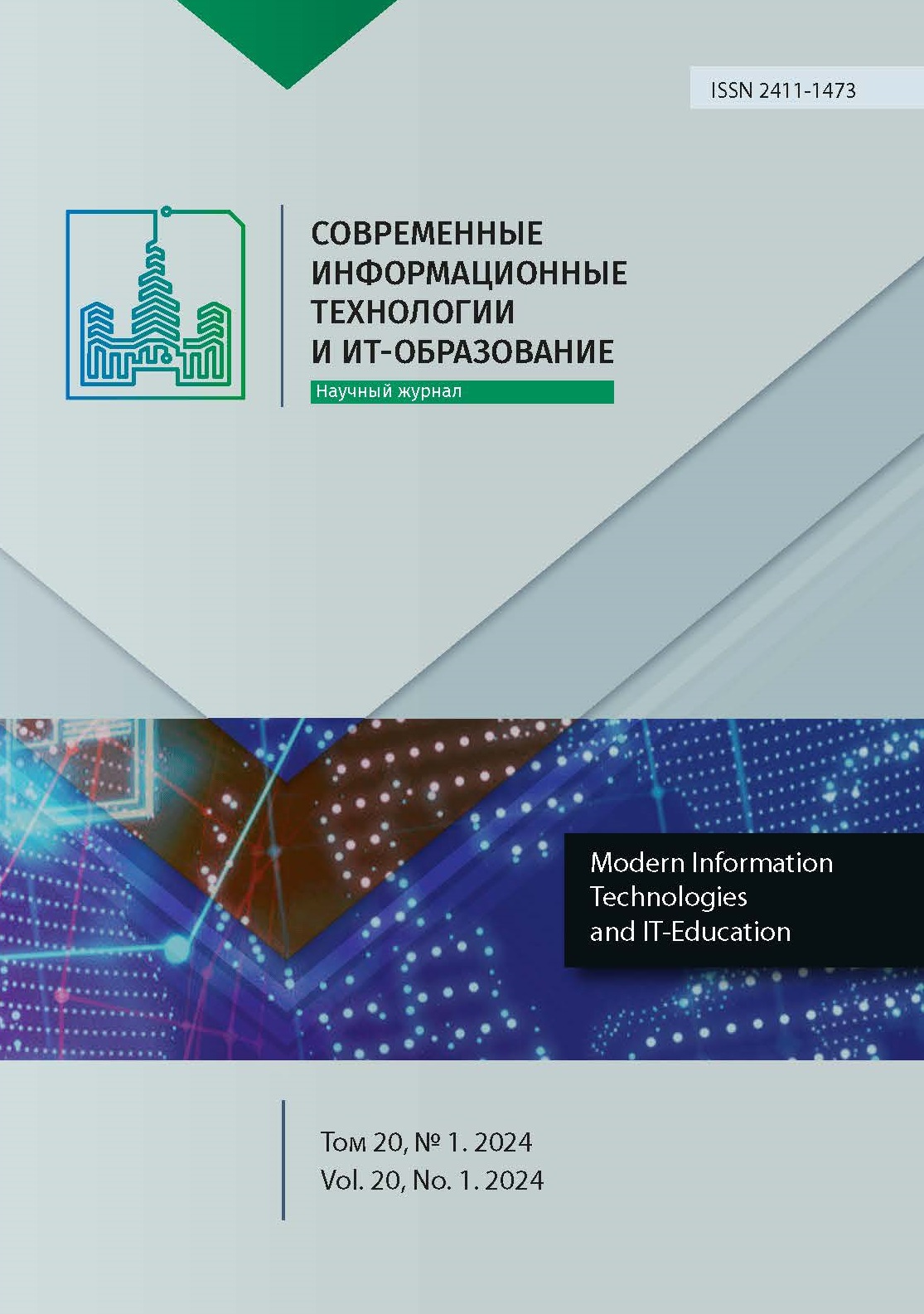Особенности оценки конкурентоспособности цифровых экосистем
Аннотация
Статья посвящена особенностям оценки конкурентоспособности цифровых экосистем как одного из ключевых элементов цифровой трансформации во многих сферах деятельности. Анализ конкурентного положения, изучение принципов и факторов конкурентоспособности цифровых экосистем является одним из новых направлений научных исследований, результаты которых будут иметь важное теоретическое и прикладное значение для формирования стратегий дальнейшего развития цифровых экосистем национального и мирового уровня с учетом устойчивых конкурентных преимуществ в динамически меняющейся экономической среде. Оценка конкурентоспособности цифровых экосистем является актуальной задачей, в которой могут быть заинтересованы сами экосистемы, их бизнес-партнеры, государства и пользователи этих экосистем. Для получения адекватных результатов оценки необходимо учитывать многоаспектность данного процесса, особенности выбора факторов конкурентоспособности и критериев ее оценки. В связи с этим в данной статье предпринята попытка исследовать основы конкурентоспособности цифровых экосистем, выявить и систематизировать факторы конкурентоспособности, принципы и критерии оценки, что в дальнейшем позволит разработать систему оценки конкурентоспособности цифровых экосистем разного масштаба. В статье рассмотрено понятие конкурентоспособности цифровой экосистемы, выявлены особенности оценки цифровой экосистемы, подробно описаны этапы оценки, рассмотрена иерархия конкурентоспособности цифровых экосистем, выявлены особенности конкурентной среды, сформулированы факторы конкурентоспособности, представлена статистика по количеству пользователей и капитализации некоторых цифровых экосистем, проведен обзор методов оценки и сформулированы основные принципы оценки и дифференцированные показатели конкурентоспособности цифровых экосистем. В заключение сформулированы сложности оценки конкурентоспособности цифровых экосистем и основные направления ее повышения.
Литература
2. Götz M., Jankowska B. Adoption of Industry 4.0 Technologies and Company Competitiveness: Case Studies from a Post-Transition Economy. Foresight and STI Governance. 2020;14(4):61-78. https://doi.org/10.17323/2500-2597.2020.4.61.78
3. Razzak M.R., Al-Riyami S., Palalic R. Organizational Meta Capabilities in the Digital Transformation Era. Foresight and STI Governance. 2022;16(4):24-31. https://doi.org/10.17323/2500-2597.2022.4.24.31
4. Asaul V.V., Koshcheev V.A., Tsvetkov Yu.A. Assessment of organization's competitiveness in the digital economy. Russian Journal of Innovation Economics. 2020;10(1);533-548. (In Russ., abstract in Eng.) https://doi.org/10.18334/vinec.10.1.100025
5. Chepurnova N.M., Muryseva V.O. Free Competition in the Digital Economy: Mechanisms of Protection. Public Administration. 2020;22(2):35-41. (In Russ., abstract in Eng.) https://doi.org/10.22394/2070-8378-2020-22-2-35-41
6. Golovina T.A., Polyanin A.V., Avdeeva I.L. Development of Digital Platforms as a Competitiveness Factor of Modern Economic Systems. Perm University Herald. ECONOMY. 2019;14(4):551-564. https://doi.org/10.17072/1994-9960-2019-4-551-564
7. Salminen V., Ruohomaa H., Takala M. Future Ecosystem Ensuring Competitiveness in Continuous Co-Evolution. In: Vesa Salminen (eds.) Human Factors, Business Management and Society. AHFE (2022) International Conference. AHFE Open Access. Vol. 56. USA: AHFE International; 2022. 9 p. http://doi.org/10.54941/ahfe1002245
8. Petrova M., Popova P., Popov V., Shishmanov K., Marinova K. Digital Ecosystem: Nature, Types and Opportunities for Value Creation. In: Rodionov D., Kudryavtseva T., Skhvediani A., Berawi M.A. (eds.) Innovations in Digital Economy. SPBPU IDE 2021. Communications in Computer and Information Science. Vol. 1619. Cham: Springer; 2022. p. 71-85. https://doi.org/10.1007/978-3-031-14985-6_5
9. Krasyuk I., Krimov S., Kolgan M., Medvedeva Yu., Khukhlaev D. Conceptual Framework for Creating a Digital Business Ecosystem Based on Marketing. IOP Conference Series: Materials Science and Engineering. 2020;940:012055. https://doi.org/10.1088/1757-899X/940/1/012055
10. Stolyarova E.V. Digital ecosystem as a competitive advantage of international companies. Bank Bulletin Journal. 2020;(7):20-28. (In Russ., abstract in Eng.) EDN: DNURXX
11. Kovalenko A.I. Theoretical and Methodological Aspects of Application the Concept of "Competitive Ability" in Scientific Researches. Journal of Modern Competition. 2013;(6):65-79. (In Russ., abstract in Eng.) EDN: RVTHUF
12. Ifraimov B.E., Belova M.T. Modern approaches to the interpretation of the concept of a digital ecosystem in terms of the regulatory capabilities of the state. Financial Markets and Banks. 2023;(11):15-21. (In Russ., abstract in Eng.) EDN: HLBZLE
13. Akberdina V.V., Vasilenko E.V. Innovation Ecosystem: Review of the Research Field. Russian Journal of Economic Theory. 2021;18(3):462-473. In Russ., abstract in Eng.) https://doi.org/10.31063/2073-6517/2021.18-3.10
14. Eremin V.V., Bauer V.P., Raikov A.N. Competitiveness management in the digital platform system. Problemy Upravlenia = Control Sciences. 2020;(4):27-40. (In Russ., abstract in Eng.) https://doi.org/10.25728/pu.2020.4.3
15. Valdez-De-Leon O. How to Develop a Digital Ecosystem: A Practical Framework. Technology Innovation Management Review. 2019;9(8):43-54. http://dx.doi.org/10.22215/timreview/1260
16. Leão P., da Silva M.M. Impacts of digital transformation on firms' competitive advantages: A systematic literature review. Strategic Change. 2021;30(5):421-441. https://doi.org/10.1002/jsc.2459
17. Aaldering L.J., Song C.H. Of leaders and laggards – Towards digitalisation of the process industries. Technovation. 2021;105:102211. https://doi.org/10.1016/J.TECHNOVATION.2020.102211
18. Belousova N.M., Panova N.A., Kublashvili O.V. Digital Transformation in the Media Industry. Modern Information Technologies and IT-Education. 2021;17(4):943-953. (In Russ., abstract in Eng.) https://doi.org/10.25559/SITITO.17.202104.943-953
19. Romanets I.I., Deshina K.A., Novikova T.I. Monopoly Trends of Modern Ecosystems in the Digital Economy. Innovacionnaja jekonomika: perspektivy razvitija i sovershenstvovanija. 2022;(1):105-112. https://doi.org/10.47581/2022/IE.1.59.15
20. Bagrationi K., Thurner K. Middle Management’s Resistance to Digital Change. Foresight and STI Governance. 2023;17(2):49-60. https://doi.org/10.17323/2500-2597.2023.2.49.60
21. Gunawan B., Ratmono B.M., Abdullah A.G. Cybersecurity and Strategic Management. Foresight and STI Governance. 2023;17(3):88-97. https://doi.org/10.17323/2500-2597.2023.3.88.97
22. Ivankova G.V., Mochalina E.P., Dubolazova Yu.A. Digital ecosystem: trend in strategic development of Russian companies. π-Economy. 2023;16(1):7-20. https://doi.org/10.18721/JE.16101
23. D'Ippolito B., Petruzzelli A.M., Panniello U. Archetypes of incumbents' strategic responses to digital innovation. Journal of Intellectual Capital. 2019;20(5):662-679. https://doi.org/10.1108/JIC-04-2019-0065
24. Hausberg J.P., Liere-Netheler K., Packmohr S., Pakura S., Vogelsang K. Research streams on digital transformation from a holistic business perspective: A systematic literature review and citation network analysis. Journal of Business Economics. 2019;89:931-963. https://doi.org/10.1007/s11573-019-00956-z
25. Kano L., Tsang E.W.K., Yeung H.W. Global value chains: A review of the multi-disciplinary literature. Journal of International Business Studies. 2020;51(4):577-622. https://doi.org/10.1057/s41267-020-00304-2

Это произведение доступно по лицензии Creative Commons «Attribution» («Атрибуция») 4.0 Всемирная.
Редакционная политика журнала основывается на традиционных этических принципах российской научной периодики и строится с учетом этических норм работы редакторов и издателей, закрепленных в Кодексе поведения и руководящих принципах наилучшей практики для редактора журнала (Code of Conduct and Best Practice Guidelines for Journal Editors) и Кодексе поведения для издателя журнала (Code of Conduct for Journal Publishers), разработанных Комитетом по публикационной этике - Committee on Publication Ethics (COPE). В процессе издательской деятельности редколлегия журнала руководствуется международными правилами охраны авторского права, нормами действующего законодательства РФ, международными издательскими стандартами и обязательной ссылке на первоисточник.
Журнал позволяет авторам сохранять авторское право без ограничений. Журнал позволяет авторам сохранить права на публикацию без ограничений.
Издательская политика в области авторского права и архивирования определяются «зеленым цветом» в базе данных SHERPA/RoMEO.
Все статьи распространяются на условиях лицензии Creative Commons «Attribution» («Атрибуция») 4.0 Всемирная, которая позволяет другим использовать, распространять, дополнять эту работу с обязательной ссылкой на оригинальную работу и публикацию в этом журналe.













